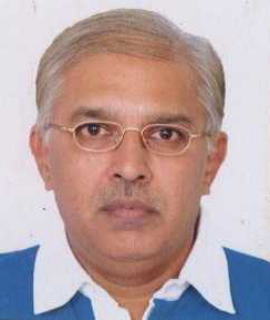Antimicrobial Agents and Resistance
Antimicrobial resistance (AMR) refers to microorganisms' ability to survive or proliferate in the presence of medications that are intended to inhibit or kill them. Antimicrobials are medications that are used to treat infections caused by microorganisms like bacteria, fungi, viruses, and protozoan parasites. Standard therapies are often ineffective when microorganisms grow resistant to antimicrobials, and in other circumstances, no medications are available. As a result, treatments are ineffective. In humans, animals, and plants, this causes illness and death. Antimicrobial resistance (AMR) has emerged as one of the most serious public health issues of the twenty-first century, posing a threat to the effective prevention and treatment of an ever-widening range of infections caused by bacteria, parasites, viruses, and fungi that are no longer susceptible to common antibiotics. Bacteria that cause common or serious infections have developed resistance to each new antibiotic that comes to market over several decades, to variable degrees. Faced with this fact, immediate action is required to avert a looming global health-care crisis.
- Impact of Antibiotic Resistance
- Factors Contributing to The Emergence of Antibiotic Resistance
- Antibiotic Resistance in Human Medicine
- Environment and The Spread of Resistance
- Development of Drug Resistance
- Antimicrobial-Resistant Microorganisms

Xingmin Sun
University of South Florida, United States
Bing Chen
Memorial University, Canada
Shailesh R Dave
Xavier’s Research Foundation, LCRD, India
Michaela Hostetler
The Ohio State University, United States


Title : Degradation of chitin using chitinase produced from molecular identified bacteria
Afra Mohammed Baghdadi, Jeddah University, Saudi Arabia
Title : Antibiotic resistance of clostridioides difficile
Xingmin Sun, University of South Florida, United States
Title : Metagenomics of the saline habitats of coastal Gujarat, India: Emerging potential for biocatalysis and bioremediation
P. Satya Singh, Saurashtra University, India
Title : Molecular Response Analysis for Lentinus squarrosulus AF5 under Azo dyes Stress: An Integrated Proteome Dynamics and Putative Metabolic Cascade
Anshu Mathur, Indian Institute of Technology Roorkee, India
Title : The necessity for innovative biotechnological solutions for the treatment of dying and textile effluents and their prose and cones
Shailesh R Dave, Xavier’s Research Foundation, LCRD, India
Title : In search of obesity-linked signature gut microbial features and species contributors of reproducible pathway shifts
Deep Chanda, National Institute of Technology, India